flavor, nutriment, and the consumer
pnbrown
11 years ago
Related Stories
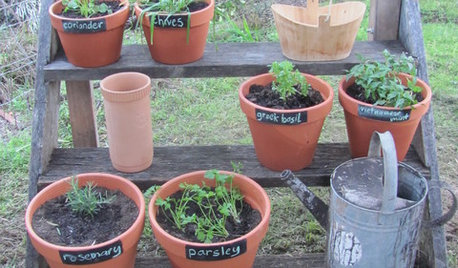
Étagère Herb Gardens Keep Flavor Within Reach
Simple stepladder-style herb gardens are easy to maintain indoors or out, for fresh dish additions anytime
Full Story
EDIBLE GARDENSThe Enticing Garden: How to Grow Bananas
Sweeten your dining table with surprising flavors of banana cultivars while adding tropical flavor to your garden
Full Story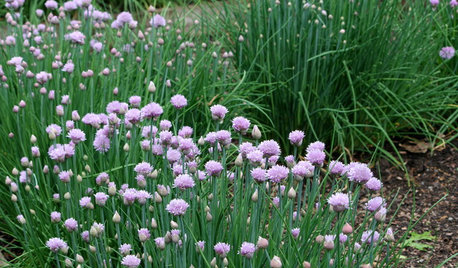
HERBSHerb Garden Essentials: How to Grow Chives
This decorative and delicately flavored herb from the onion family is easy to grow indoors and out
Full Story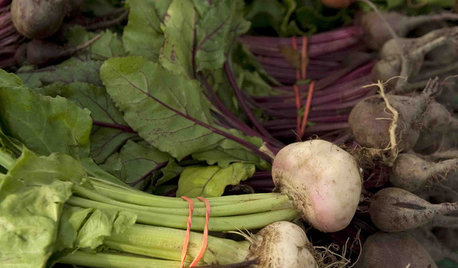
FARM YOUR YARDCool-Season Vegetables: How to Grow Beets
Give canned versions of this fall and spring garden favorite the heave-ho and discover its true flavor and colors
Full Story
TROPICAL STYLEAdd Some Tiki Style to Your Summer
Even the landlocked can infuse their home or yard with some South Pacific island flavor
Full Story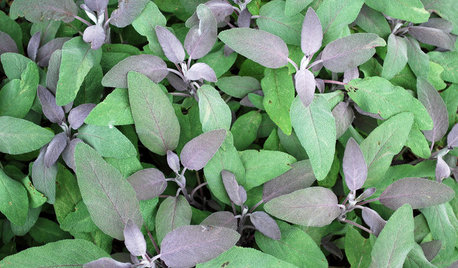
EDIBLE GARDENSHerb Garden Essentials: Grow Your Own Culinary Sage
Fill in your garden with this drought-tolerant perennial that’s flavorful and deer resistant
Full Story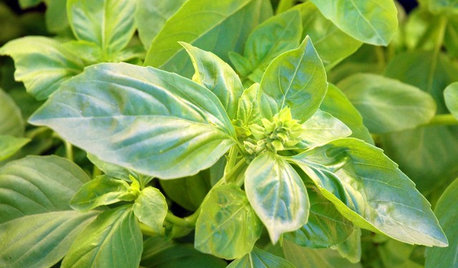
SUMMER GARDENINGHow to Grow Basil
Bright color, quick growth and endless uses for cooking make this summer annual a winner in the garden or a pot
Full Story
HOME TECHIce Cubes Are Obsolete! New Technology Is Way Cooler
Chill drinks the smarter way than using messy old ice, with these new home tech solutions
Full Story
GARDENING GUIDESGreat Design Plant: Grow Blueberries for Their Fruit and More
Eastern gardeners should consider growing blueberry plants for their delicious fruits, bee-friendly spring blooms and brilliant fall foliage
Full Story
HOLIDAYS3 Recipes for Foraged Holiday Table Decor
The coauthors of ‘The Wreath Recipe Book’ suggest 3 simple table settings you can make from materials found in the yard or at the market
Full Story


wayne_5 zone 6a Central Indiana
pnbrownOriginal Author
Related Discussions
Jarrahdale Squash (upon sampling) has very little flavor
Q
Accounting for Produce Consumed at Home
Q
Rank these for best flavor & quality: Sumo, Kishu, Gold Nugget, etc
Q
What is "Red Velvet Flavor"?
Q
GreeneGarden
TheMasterGardener1
GreeneGarden
User
TheMasterGardener1
User
TheMasterGardener1
david52 Zone 6
wayne_5 zone 6a Central Indiana
TheMasterGardener1
pnbrownOriginal Author
TheMasterGardener1
pnbrownOriginal Author
TheMasterGardener1
GreeneGarden
elisa_z5
TheMasterGardener1
glib
User
pnbrownOriginal Author
User
TheMasterGardener1
glib
wayne_5 zone 6a Central Indiana
glib
GreeneGarden
User
GreeneGarden
User
GreeneGarden
ga_karen
wayne_5 zone 6a Central Indiana
glib
elisa_z5
TheMasterGardener1
wayne_5 zone 6a Central Indiana
wayne_5 zone 6a Central Indiana
glib
elisa_z5
pnbrownOriginal Author
GreeneGarden
Michael
User
wayne_5 zone 6a Central Indiana
Michael
wayne_5 zone 6a Central Indiana
pnbrownOriginal Author
Michael